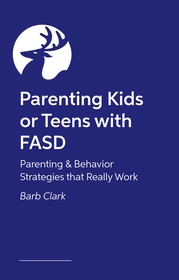
Hindu, Muslim, & the Dynamics of Identity in South Asia
Belonging and Conflict from the Past to the Present
Sorozatcím: Critical Perspectives in South Asian History;
-
13% KEDVEZMÉNY?
- A kedvezmény csak az 'Értesítés a kedvenc témákról' hírlevelünk címzettjeinek rendeléseire érvényes.
- Kiadói listaár GBP 85.00
-
40 608 Ft (38 675 Ft + 5% áfa)
Az ár azért becsült, mert a rendelés pillanatában nem lehet pontosan tudni, hogy a beérkezéskor milyen lesz a forint árfolyama az adott termék eredeti devizájához képest. Ha a forint romlana, kissé többet, ha javulna, kissé kevesebbet kell majd fizetnie.
- Kedvezmény(ek) 13% (cc. 5 279 Ft off)
- Kedvezményes ár 35 330 Ft (33 647 Ft + 5% áfa)
Iratkozzon fel most és részesüljön kedvezőbb árainkból!
Feliratkozom
40 608 Ft

Beszerezhetőség
Még nem jelent meg, de rendelhető. A megjelenéstől számított néhány héten belül megérkezik.
Why don't you give exact delivery time?
A beszerzés időigényét az eddigi tapasztalatokra alapozva adjuk meg. Azért becsült, mert a terméket külföldről hozzuk be, így a kiadó kiszolgálásának pillanatnyi gyorsaságától is függ. A megadottnál gyorsabb és lassabb szállítás is elképzelhető, de mindent megteszünk, hogy Ön a lehető leghamarabb jusson hozzá a termékhez.
A termék adatai:
- Kiadó Bloomsbury Publishing (UK)
- Megjelenés dátuma 2026. január 8.
- Kötetek száma Hardback
- ISBN 9781350569157
- Kötéstípus Keménykötés
- Terjedelem312 oldal
- Méret 234x156 mm
- Nyelv angol
- Illusztrációk 10 bw illus 700
Kategóriák
Rövid leírás:
This volume highlights the historical complexities bound up in Hindu-Muslim relations in South Asia and challenges over-simplistic understandings of these relations by demonstrating that they are, and have always been, complex and contingent.
TöbbHosszú leírás:
For centuries, many South Asians and Westerners have assumed that an inherent tension between Hindus and Muslims represents a social fact that has long defined the Subcontinent's history. This volume brings together a wealth of contributions that demonstrate how, for many individuals and groups, 'Hindu' and 'Muslim' are, and always have been, more than predetermined markers of religion. Rather, these terms represent sets of contested identities, belongings, communities, ethnicities, histories, regions, neighbourhoods and politics, as well as diverse artistic, literary and music traditions. Arguing that 'religion' does not adequately account for these terms, contributors also recognise that despite this diversity, notions of 'Hindu' and 'Muslim' have long acted as a shared orientation marker of identity and belonging.
Challenging the imaginary of a divided South Asia and historicizing supposed Hindu-Muslim binaries, this book provides a crucial springboard for a broader understanding of these identities as intertwined, interdependent and even co-constructed, making distinction sometimes impossible to discern. Each chapter explores specific case studies of interactions, divergences and convergences between 'Hindu' and 'Muslim' from the eighth century to today, to understand how they have evolved over more than a millennium, and actively reflects upon the theoretical and methodological challenges and constructive approaches necessary to ongoing debates about the complex historical relationship between 'Hindus' and 'Muslims'.
Tartalomjegyzék:
Introduction: Hindu, Muslim, Identities, Identifications, Belongings and Rejection, Peter Gottschalk (Wesleyan University, USA)
Part I: Interactions
1. The Matiya Rebellion and Religious Categories in Early Modern Gujarat, Samira Sheikh (Vanderbilt University, USA)
2. Panipat Remembered: Before the Fort of Kalinjar, August 23 1803, William R. Pinch (Wesleyan University, USA)
3. Minority Lessons: Education, Citizenship, and Religion in India, Parna Sengupta (Stanford University, USA)
4. Hindu-Muslim Relations and North India's Oldest Music Festival: The Harballabh Mela of Jalandhar, Radha Kapuria (University of Durham, UK)
Part II: Interweavings
5. Account of a Journey from Vijayanagara to Golconda: On the Convergence of Sanskritic and Persianate Cultures in the Deccan, Philip Wagoner (Wesleyan University, USA)
6. Urdu Literary Culture and a Shared Ethical Tradition in Late-Colonial India, Farina Mir (University of Michigan, USA)
7. Resonant Pasts: Music, Memory, and Communalism in North India, Richard David Williams (SOAS University of London, UK)
Part III: Interpellations
8. The Lamp of Wisdom: Similes and Shared Symbolic Spatiality in Western India, Sara Keller (University of Erfurt, Germany)
9. Marshalling Poets for the Nation: An Experiment in the Two Wings of Pakistan, 1947-1971, Rachel Fell McDermott (Columbia University, USA)
Part VI: Divergences
10. The End of Persianate Hinduism, Carl Ernst (University of North Carolina at Chapel Hill, USA)
11. Cross-Cultural Friendships in a Partitioned Land: A Conversation, Amina Yaqin (University of Exeter, UK)
12. Romance and Religion: Hindu Women, Muslim Men and Recalcitrant Intimacies in Modern India, Charu Gupta (University of Delhi, India)








